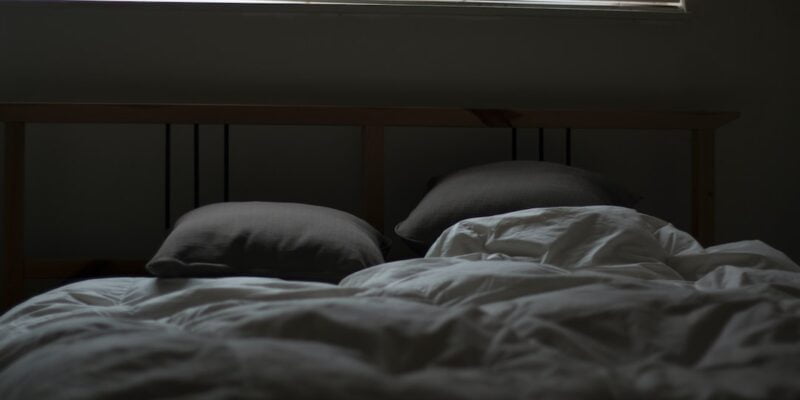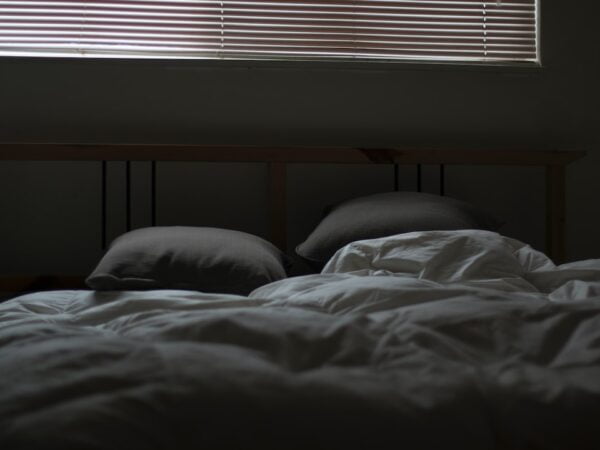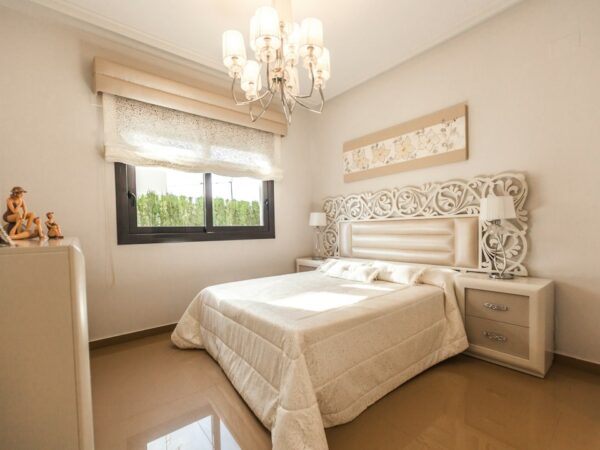
Unwind and Recharge: Effective Sleep Relaxation Techniques for a Restful Night
Sleep is an essential part of our daily lives, yet many people struggle to get a good night’s rest. According to the National Sleep Foundation, about 30% of adults experience occasional insomnia, while 10% suffer from chronic insomnia. Sleep disturbances can have a significant impact on our physical and mental well-being, affecting our mood, cognitive function, and overall quality of life. This is where sleep relaxation techniques come in.
Sleep relaxation techniques are practices that aim to promote relaxation and improve sleep quality. These techniques can help calm the mind and body, reduce stress and anxiety, and create a conducive environment for sleep. By incorporating these techniques into your bedtime routine, you can enhance your ability to fall asleep faster, stay asleep longer, and wake up feeling refreshed and rejuvenated.
Key Takeaways
- Sleep is crucial for overall health and well-being.
- Understanding sleep cycles and patterns can help improve sleep quality.
- Common causes of sleep disturbances include stress, anxiety, and poor sleep habits.
- Relaxation techniques such as breathing exercises, mindfulness, yoga, and aromatherapy can promote restful sleep.
- Creating a sleep-friendly environment can also improve sleep quality.
The Importance of Sleep for Health and Well-Being
Sleep plays a crucial role in maintaining our overall health and well-being. It is during sleep that our bodies repair and regenerate cells, strengthen the immune system, and consolidate memories. Lack of sleep can have detrimental effects on both our physical and mental health.
Physically, sleep deprivation can weaken the immune system, making us more susceptible to illnesses such as colds and flu. It can also increase the risk of developing chronic conditions such as obesity, diabetes, and cardiovascular disease. Additionally, lack of sleep can impair cognitive function, affecting our ability to concentrate, make decisions, and perform daily tasks.
Mentally, sleep deprivation can lead to mood swings, irritability, and increased stress levels. It can also contribute to the development of mental health disorders such as depression and anxiety. Getting enough quality sleep is essential for maintaining optimal mental health and emotional well-being.
Understanding Sleep Cycles and Patterns
To understand how sleep relaxation techniques work, it is important to have a basic understanding of sleep cycles and patterns. Sleep consists of different stages, each with its own unique characteristics and functions.
There are two main types of sleep: rapid eye movement (REM) sleep and non-rapid eye movement (NREM) sleep. NREM sleep is further divided into three stages: N1, N2, and N3. N1 is the lightest stage of sleep, while N3 is the deepest stage of sleep, also known as slow-wave sleep.
Throughout the night, we cycle through these stages multiple times. Each cycle lasts about 90 minutes, with REM sleep becoming longer and more prominent as the night progresses. The first cycle typically has a shorter REM period, while the last cycle can have a REM period of up to an hour.
Our sleep patterns are also influenced by our circadian rhythm, which is our internal biological clock that regulates our sleep-wake cycle. The circadian rhythm is influenced by external factors such as light exposure and daily routines. Understanding these sleep cycles and patterns can help us optimize our sleep and make the most of our relaxation techniques.
Common Causes of Sleep Disturbances
| Common Causes of Sleep Disturbances | Description |
|---|---|
| Stress and Anxiety | Excessive worrying and racing thoughts can make it difficult to fall asleep or stay asleep. |
| Environmental Factors | Noise, light, temperature, and uncomfortable bedding can all contribute to sleep disturbances. |
| Medical Conditions | Chronic pain, sleep apnea, restless leg syndrome, and other medical conditions can interfere with sleep. |
| Medications | Some medications can cause insomnia or disrupt sleep patterns. |
| Caffeine and Alcohol | Caffeine can keep you awake and alcohol can disrupt sleep quality. |
| Irregular Sleep Schedule | Going to bed and waking up at different times can throw off your body’s natural sleep rhythm. |
There are several common factors that can disrupt our sleep and lead to sleep disturbances. Stress and anxiety are major culprits when it comes to sleep problems. Racing thoughts and worries can make it difficult to relax and fall asleep. Physical discomfort, such as pain or discomfort from an injury or medical condition, can also interfere with sleep.
In today’s digital age, technology can also play a significant role in disrupting our sleep. The blue light emitted by electronic devices such as smartphones, tablets, and computers can suppress the production of melatonin, a hormone that regulates sleep. Additionally, the constant stimulation from social media and notifications can keep our minds active and prevent us from winding down for sleep.
Lifestyle habits can also affect our sleep quality. Consuming caffeine or alcohol close to bedtime can interfere with our ability to fall asleep and stay asleep. Irregular sleep schedules, such as staying up late on weekends and then trying to catch up on sleep during the week, can disrupt our circadian rhythm and make it harder to establish a consistent sleep routine.
Relaxation Techniques for a Restful Night’s Sleep
There are various relaxation techniques that can help promote relaxation and improve sleep quality. One popular technique is progressive muscle relaxation (PMR), which involves tensing and then relaxing different muscle groups in the body. This technique helps release tension and promotes a state of deep relaxation, making it easier to fall asleep.
Visualization is another effective relaxation technique. It involves creating mental images of peaceful and calming scenes, such as a beach or a forest. By focusing on these images, you can redirect your thoughts away from stress and anxiety, allowing your mind to relax and prepare for sleep.
Another technique is guided imagery, where you listen to a recorded audio that guides you through a relaxing scenario. This can be particularly helpful for those who struggle with racing thoughts or have difficulty quieting their mind before bed.
Breathing Exercises for Better Sleep
Breathing exercises are another effective way to calm the mind and body for better sleep. Deep breathing, also known as diaphragmatic breathing, involves taking slow, deep breaths in through the nose and exhaling slowly through the mouth. This type of breathing activates the body’s relaxation response, reducing stress and promoting a sense of calm.
Another breathing exercise that can help promote better sleep is alternate nostril breathing. This technique involves closing one nostril with your finger and inhaling through the other nostril, then closing that nostril and exhaling through the opposite nostril. This rhythmic breathing pattern helps balance the nervous system and promote relaxation.
Mindfulness and Meditation for Sleep
Mindfulness and meditation practices can also be beneficial for improving sleep quality. Mindfulness involves paying attention to the present moment without judgment, while meditation involves focusing the mind and eliminating distracting thoughts.
Practicing mindfulness before bed can help calm the mind and reduce stress and anxiety. This can be done through simple activities such as deep breathing, body scans, or mindful walking. Meditation, on the other hand, can help quiet the mind and promote relaxation. There are various meditation techniques to choose from, such as focused attention meditation or loving-kindness meditation.
Yoga Poses for Sleep and Relaxation
Yoga is a holistic practice that combines physical postures, breathing exercises, and meditation. Certain yoga poses can be particularly beneficial for promoting relaxation and improving sleep quality.
One pose that is often recommended for better sleep is Legs-Up-The-Wall pose. This pose involves lying on your back with your legs extended up against a wall. It helps calm the nervous system, reduce anxiety, and promote relaxation.
Child’s pose is another pose that can help release tension and calm the mind. It involves kneeling on the floor with your knees wide apart and your forehead resting on the ground. This pose gently stretches the back and hips, promoting relaxation and stress relief.
Aromatherapy for Sleep
Aromatherapy involves using essential oils to promote relaxation and improve sleep quality. Certain essential oils have sleep-promoting properties and can help create a calming atmosphere in your bedroom.
Lavender oil is one of the most popular essential oils for sleep. It has a soothing scent that can help reduce anxiety and promote relaxation. Other essential oils that are commonly used for sleep include chamomile, bergamot, and ylang-ylang.
There are several ways to use essential oils for better sleep. You can add a few drops to a diffuser or humidifier in your bedroom, or you can mix them with a carrier oil and apply them topically to your skin.
Creating a Sleep-Friendly Environment
In addition to incorporating relaxation techniques into your bedtime routine, creating a sleep-friendly environment is essential for improving sleep quality. Your sleep environment should be comfortable, quiet, and free from distractions.
One important factor to consider is lighting. Exposure to bright light, especially blue light from electronic devices, can interfere with the production of melatonin and disrupt your sleep-wake cycle. It is recommended to dim the lights in your bedroom and avoid using electronic devices at least an hour before bed.
Temperature is another important factor to consider. The ideal temperature for sleep is around 65 degrees Fahrenheit (18 degrees Celsius). A cool room can help promote better sleep by allowing your body to cool down and maintain a comfortable temperature throughout the night.
Other factors to consider include noise levels, bedding, and mattress comfort. It is important to create a quiet and peaceful environment that promotes relaxation and restful sleep.
Sleep relaxation techniques are valuable tools for promoting relaxation and improving sleep quality. By incorporating these techniques into your bedtime routine, you can create a conducive environment for sleep and enhance your ability to fall asleep faster, stay asleep longer, and wake up feeling refreshed and rejuvenated.
Remember that everyone is different, so it may take some trial and error to find the techniques that work best for you. It is also important to be consistent with your sleep routine and give yourself time to unwind before bed. With patience and practice, you can develop a personalized sleep routine that works for you and enjoy the many benefits of a good night’s rest.
FAQs
What are sleep relaxation techniques?
Sleep relaxation techniques are methods or practices that help individuals calm their mind and body to promote better sleep. These techniques can include breathing exercises, meditation, visualization, and progressive muscle relaxation.
How do sleep relaxation techniques work?
Sleep relaxation techniques work by reducing stress and anxiety, which are common causes of sleep disturbances. By calming the mind and body, these techniques can help individuals fall asleep faster and stay asleep longer.
What are some common sleep relaxation techniques?
Some common sleep relaxation techniques include deep breathing exercises, progressive muscle relaxation, visualization, and meditation. Other techniques may include aromatherapy, listening to calming music, and practicing yoga.
Are sleep relaxation techniques effective?
Yes, sleep relaxation techniques can be effective in promoting better sleep. However, the effectiveness may vary from person to person, and it may take some time to find the right technique that works for you.
Can sleep relaxation techniques be used in conjunction with other sleep aids?
Yes, sleep relaxation techniques can be used in conjunction with other sleep aids, such as medication or natural supplements. However, it is important to consult with a healthcare professional before combining different sleep aids.
Are there any risks associated with sleep relaxation techniques?
There are generally no risks associated with sleep relaxation techniques. However, individuals with certain medical conditions or who are pregnant should consult with a healthcare professional before trying any new relaxation techniques.


















